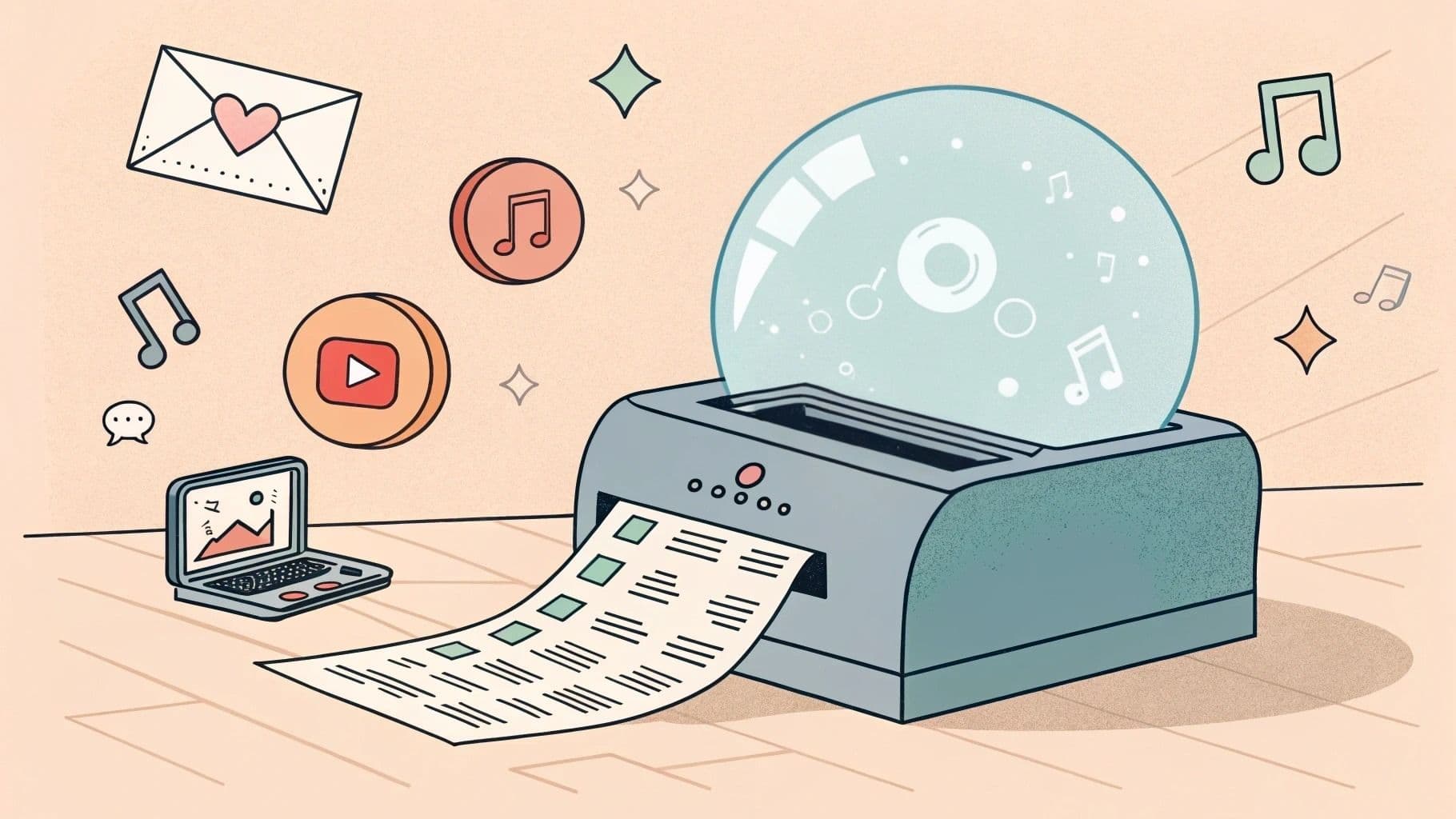Best Transcription Services: Unveiling Top Picks
Best Transcription Services

Key takeaways:
The best transcription services typically offer high accuracy, fast turnaround times, and support for multiple file formats and languages. They often include features like automated and human transcription options, secure data handling, and easy integration with various platforms.
In the fast-paced digital world, the demand for accurate and efficient transcription services to transcribe audio file recordings with high readability is at an all-time high. Whether you're a legal professional requiring verbatim documents, a medical editor in need of patient record transcriptions, or a content creator looking to transcribe your recordings and make your media more accessible with improved readability, finding the best transcription services is critical to ensuring precision and timely delivery. With numerous options available, it's essential to discern which service aligns with your specific needs for plan readability in meetings minutes. This post will guide you through the key features, such as readability and editor tools, that set apart superior transcription providers who transcribe recordings from their counterparts.
Navigating through myriad transcription options for audio meetings can be daunting; however, clarity comes with understanding what constitutes top-tier performance in transcribing minutes in this niche industry. We'll explore those attributes here—let's dive into identifying which meeting transcription apps stand out in terms of accuracy, turnaround time, confidentiality protocols, and overall value for money for transcribing minutes of meetings.
![]()
Understanding Transcription Services for Various Audiences
Primary Users
Transcription services cater to a broad spectrum of users. Each group has unique needs, such as audio minute meetings, that dictate their transcription requirements.
Students often need lectures audio transcribed by transcription services or transcription apps to study or reference material in text form. This allows them to review audio content at their own pace and improves readability with the help of a transcription service for meetings. For legal professionals, accuracy is paramount as they deal with court proceedings and meetings where every word matters, often relying on transcription services for accurate audio and minute recording. Accurate transcripts from a transcription service ensure the integrity of legal records, facilitate case reviews, and preserve the details of audio recordings from meetings.
Media personnel, including podcasters and journalists, rely on transcriptions to convert audio interviews and meetings into articles or provide written versions of their broadcasts for wider accessibility.
Varying Needs
The demand for audio transcription within different fields, such as meetings, leads to diverse service specifications.
Podcasters may seek transcription services with speaker identification for audio from meetings because it helps listeners follow conversations involving multiple speakers. Journalists require fast turnaround times from transcription services for audio so they can publish news stories promptly while maintaining the quality of the information shared.
Corporate settings often involve meetings and conferences where details are crucial; hence, companies might look for services that offer audio translation into various languages besides simple transcription.
Accessibility Importance
Accessibility remains a key aspect of modern transcription services.
For individuals who are hearing impaired, having access to accurate transcript versions of audio content from meetings is essential. It ensures inclusivity by allowing them to engage with media through listening to audio and reading the transcript just like anyone else would do. Transcripts also aid in learning environments where students with hearing disabilities can fully participate in classes alongside their peers, with audio transcripts providing an essential tool for inclusion.
To conclude, understanding the nuances between different users’ needs highlights why there's no one-size-fits-all solution in audio transcription services. Students benefit from detailed notes and audio transcripts whereas legal experts prioritize precision above all else. Media professionals need efficiency coupled with clarity when converting spoken words from audio into written transcripts.
Customization becomes necessary when addressing varied demands across sectors such as education, law enforcement, journalism, and business communications—each requiring a tailored approach towards achieving optimal results through these specialized offerings, including transcript services.
Key Features of the Best Transcription Services
Accuracy Rates
The best transcription services prioritize accuracy rates. High accuracy ensures that transcripts reflect the original audio with minimal errors. This is essential for users who rely on transcriptions for legal proceedings, medical records, or educational material.
Services boasting high accuracy often use a combination of advanced speech recognition technology and professional human proofreaders to ensure an accurate transcript. For instance, a transcript service might advertise 99% accuracy, meaning only one error per 100 words. In critical applications like medical transcription, this level of precision is non-negotiable.
Turnaround Time
Another vital feature is the flexibility in turnaround time options for transcripts. Users have varying needs.
Some best transcription services offer multiple turnaround times ranging from standard to expedited delivery.
- Standard delivery may take several days but costs less.
- Expedited service delivers transcripts within 24 hours or even on the same day for urgent needs.
A journalist working on a tight deadline might opt for same-day turnaround to publish an interview promptly while a researcher could choose standard delivery for interviews conducted during long-term studies.
Multi-Language Support
Global reach demands multi-language support from top-tier transcription providers. A diverse language offering allows businesses and individuals to cater to international audiences without language barriers.
Best transcription services usually include:
- Major European languages such as Spanish, French, and German.
- Asian languages like Mandarin Chinese or Japanese.
- Less commonly spoken languages which can be crucial depending on user demographics.
Access to various languages expands opportunities for cross-border research calls and conferences requiring accurate translation and transcription simultaneously.
![]()
Human vs. Automated Transcription: Pros and Cons
Nuance Recognition
Human transcriptionists excel in nuance recognition. They understand context, accents, and dialects better than machines. This human touch ensures high accuracy, especially with complex audio files that have background noise or multiple speakers talking over each other.
Automated transcription services boast impressive speed. They convert speech to text file almost instantly. However, they often struggle with nuances like accents or colloquial language.
Speed Efficiency
The speed of automated services is a significant advantage. For straightforward tasks where the audio quality is good and clear, AI-driven transcription can provide quick results.
Humans transcribe slower but their work involves careful listening and interpretation of the content part by part which can be beneficial for ensuring accuracy in detail-oriented projects.
Cost-Effectiveness
AI-driven services are generally more cost-effective than hiring a professional human transcriber due to lower overhead costs associated with automation technology.
However, when considering the potential need for revisions due to errors in automated transcripts, human transcription may be more economical in the long run for complex projects.
Error Rates
Automated systems have higher error rates in complex audio scenarios involving cross-talk or heavy accents.
Conversely, humans make fewer mistakes but are not infallible; they too can mishear or mistype at times.
Both methods come with potential errors but differ significantly depending on the complexity of the recording being transcribed.
To summarize:
- Human transcription offers superior nuance recognition but at a slower pace.
- Automated services provide quick turnarounds but may lack accuracy in complicated recordings.
- AI-driven options tend to be more cost-effective upfront while humans could save time on corrections down the line.
In choosing between human and automated transcription services, weigh these pros and cons against your specific needs for accuracy versus speed and overall budget considerations.
Factors Influencing Transcription Service Selection
Confidentiality Policies
A primary concern for many when choosing a transcription service is the handling of sensitive content. Confidentiality policies are critical, especially when dealing with legal, medical, or personal data. Services that prioritize security often implement stringent measures to protect client information.
These may include:
- Non-disclosure agreements (NDAs)
- Secure file transfer protocols
- Data encryption
For instance, a legal firm transcribing case files will seek services with robust confidentiality assurances. This ensures that sensitive testimony remains protected throughout the transcription process.
Scalability Options The ability to handle projects of different sizes is another significant factor in selecting a transcription service. Scalability caters to varying needs, from single-document tasks to ongoing bulk assignments. The best services offer flexible solutions without compromising quality or turnaround time.
Options typically available include:
- Tiered pricing structures
- Dedicated account management for large volumes
- Rapid scaling up or down according to demand
Consider an academic researcher who requires transcriptions for multiple interviews during peak research periods and fewer at other times. A scalable service would accommodate these fluctuating demands efficiently.
User Interface Simplicity Ease-of-use through a simple user interface can greatly enhance client experience. A straightforward platform allows clients to upload files, track progress, and receive completed transcripts without hassle.
Key features might be:
- Drag-and-drop file uploads
- Real-time status updates
- Intuitive dashboard navigation
An example here could be journalists who need quick turnarounds on interviews; they benefit from an uncomplicated system that lets them submit recordings immediately after conducting them.
Ensuring Accuracy and Speed in Transcription Services
Proofreading Processes
Maintaining high accuracy in transcripts is crucial. It requires a meticulous proofreading process. Transcription services often employ multiple levels of checks to ensure each transcript reflects the original audio with precision.
Transcriptionists first generate a draft. They then comb through it, correcting errors. This step is vital for capturing nuances and rectifying any misheard phrases or technical terms that automated tools might miss.
Advanced Software
Advanced software significantly speeds up transcription delivery. Today's market offers various automated transcriptions technologies that efficiently convert speech to text.
Software solutions use algorithms to quickly parse words from an audio recording. However, they may not always grasp context accurately. That’s why combining technology with human oversight is best practice for achieving both speed and accuracy.
Experienced Transcribers
The role of experienced transcriptionists cannot be overstated when aiming for contextual correctness. Humans understand subtleties like accents, dialects, and industry-specific jargon better than any machine could.
A seasoned transcriber will discern the correct meaning behind spoken words within a recording, ensuring accurate transcripts every time.
Experienced professionals also adapt swiftly to different audio qualities which can affect the transcription's clarity if not managed properly.
![]()
Security Measures in Top Transcription Solutions
Data Encryption
Transcription services prioritize client confidentiality. They employ data encryption to protect transcripts. This involves converting information into a coded format during transmission and storage. Only authorized parties can decrypt and access the content.
Encryption standards like AES 256-bit ensure robust security. It's akin to a complex lock only opened with the right key, which is held by fewer hands. The use of such high-level encryption helps prevent data breaches.
Legal Compliance
Top transcription solutions adhere to strict privacy laws. Regulations like GDPR in Europe protect personal data privacy, while HIPAA safeguards health information in the US.
Compliance ensures that services operate legally and ethically. For example, under GDPR, companies must secure explicit consent before processing personal data. HIPAA-compliant services implement stringent measures for handling medical records securely.
Secure Transfer
File safety is crucial when sharing sensitive audio or documents for transcription. Services utilize secure file transfer protocols (SFTP) or encrypted file-sharing platforms.
These methods shield against unauthorized access during upload or download processes. Think of them as armored vehicles transporting valuables safely through risky territories.
The Role of AI and Machine Learning in Automated Transcriptions and Audio Recording Evolution
Continuous Improvement
Machine learning algorithms are designed to improve over time. With each new piece of data, these systems learn and adapt. This is especially crucial for transcription services. As users upload more audio files, the system fine-tunes its accuracy.
For instance, a machine learning model might start with a 70% accuracy rate in transcribing medical lectures. Over time, as it processes more specialized terminology and various speech patterns, its proficiency increases significantly.
Noise Filtering
AI has become adept at isolating speech from noise. This capability is invaluable for transcription services that often deal with poor-quality audio files. Advanced algorithms can now reduce or eliminate background sounds.
Consider a recording from a busy coffee shop; older software would struggle to discern words amidst the clatter. Now, AI can filter out those distractions to deliver clear transcriptions.
Accent Recognition
Diverse accents pose challenges for traditional transcription methods. However, AI's evolving ability to understand different pronunciations enhances service inclusivity and precision.
A user with a thick Scottish accent may have been misunderstood by earlier systems but today’s technology can recognize and accurately transcribe their speech without significant errors.
Speech Recognition Advancements
Ongoing research pushes boundaries in speech recognition technology further every day.
- New neural network architectures are being tested.
- Algorithms are becoming more sophisticated at understanding natural language nuances.
These advancements mean that even complex conversations with multiple speakers can be transcribed reliably by top-tier services using cutting-edge AI tools.
Affordable and Efficient Transcription Options for Budget-Conscious Users
Subscription Models
Subscription models offer regular users significant cost savings. Rather than paying per transcript, a monthly fee provides ongoing access. This model suits those with consistent transcription needs.
Many services feature various tiers to cater to different volumes of content. For example, a basic tier may include up to 10 hours of audio files each month. Higher tiers might allow more hours or additional features like support for video files.
Competitive Pricing
Competitive per-minute pricing is key for occasional users who require transcriptions less frequently. Some platforms charge as low as $0.10 per minute, making them highly accessible.
The prices often reflect the turnaround time and the quality of the transcript produced. Services that use AI technology can offer lower costs since there's less human intervention required in creating the script.
Free Trials
Free trial periods enable testing without upfront payment risks. They demonstrate platform usability and output quality before committing financially.
A typical trial might allow transcription of several short clips or one longer audio file at no cost. If satisfied with the service, users can then choose to subscribe or pay on a per-use basis without worrying about poor quality or hidden extra fees.
Money-Back Guarantees
Money-back guarantees provide another layer of financial safety for new customers trying out transcription apps for the first time, ensuring satisfaction with their investment into the service’s ability to handle tasks such as background noise reduction in audio files.
If results don't meet expectations within a certain period after purchase—often 30 days—the user can request a full refund, which mitigates risk further when choosing among options available in this competitive market space.
![]()
The Future Outlook of Transcription Services Industry
Virtual Integration
The transcription services industry is evolving rapidly. Virtual meeting platforms are set to incorporate more robust transcription features. This integration means that users can expect real-time text versions of their meetings and discussions, directly within the platform interface. For example, a team using a video conferencing tool might have instant access to transcripts without needing separate software.
Technological advancements will drive this change. Artificial intelligence (AI) and machine learning algorithms are becoming adept at understanding human speech in various accents and dialects. As these technologies improve, they will offer more accurate transcriptions integrated into virtual environments seamlessly.
Technological Advancements
In recent years, technology has significantly reduced turnaround times for transcription services. Further improvements are on the horizon as AI becomes more sophisticated. Algorithms capable of learning from corrections and feedback will speed up the process even more.
Currently, turnaround times can range from a few hours to several days depending on service levels chosen by customers. However, with continuous advancements in speech recognition technologies, we may soon see standard turnaround times shrink considerably—potentially to mere minutes after an audio file's upload.
Specialized Growth
The demand for specialized transcription services is forecasted to grow substantially. Catering to niche markets, such as legal or medical industries where accuracy is paramount, these services must adhere to strict confidentiality rules and use specific terminologies unique to each field.
For instance:
- A medical transcription service might need extensive knowledge of medical terms.
- Legal transcription requires familiarity with judicial language and procedures.
Specialized providers ensure high-quality transcripts tailored for particular sectors' needs while maintaining compliance with industry standards.
Summary
The exploration of transcription services has revealed a landscape rich with options, each tailored to meet the nuanced demands of various users. From the precision and customization offered by human transcriptionists to the speed and scalability of AI-driven solutions, choosing the right service hinges on a matrix of factors including accuracy, speed, security, and cost-efficiency. As the industry evolves, propelled by advancements in machine learning and artificial intelligence, users are poised to benefit from an ever-improving balance between affordability and quality.
As we look towards a future where transcription services become increasingly integral to numerous sectors, it is imperative for users to stay informed and select services that align with their specific needs. Consider the insights provided as a foundation for your decision-making process. Engage with a service like Latenode, which not only meets your current requirements but also demonstrates the foresight to adapt to tomorrow's challenges. Act now—embrace the transformative power of top-tier transcription services like Latenode to unlock new levels of efficiency and accuracy in your work.
Related articles:



